Visual perception Extra Challenge Worksheets for Ages 4-6
9 filtered results
-
From - To
Enhance your child's visual perception skills with our Extra Challenge Worksheets, designed specifically for ages 4-6. These engaging and colorful activities help young learners improve their ability to recognize patterns, distinguish differences, and develop spatial awareness. Perfect for preschool and kindergarten students, these worksheets support cognitive development and prepare kids for more advanced learning. Dive into a world of fun puzzles, matching exercises, and visual games that make learning enjoyable. Perfect for parents or teachers looking for quality educational resources to help children thrive. Discover the benefits of visual perception practice today!
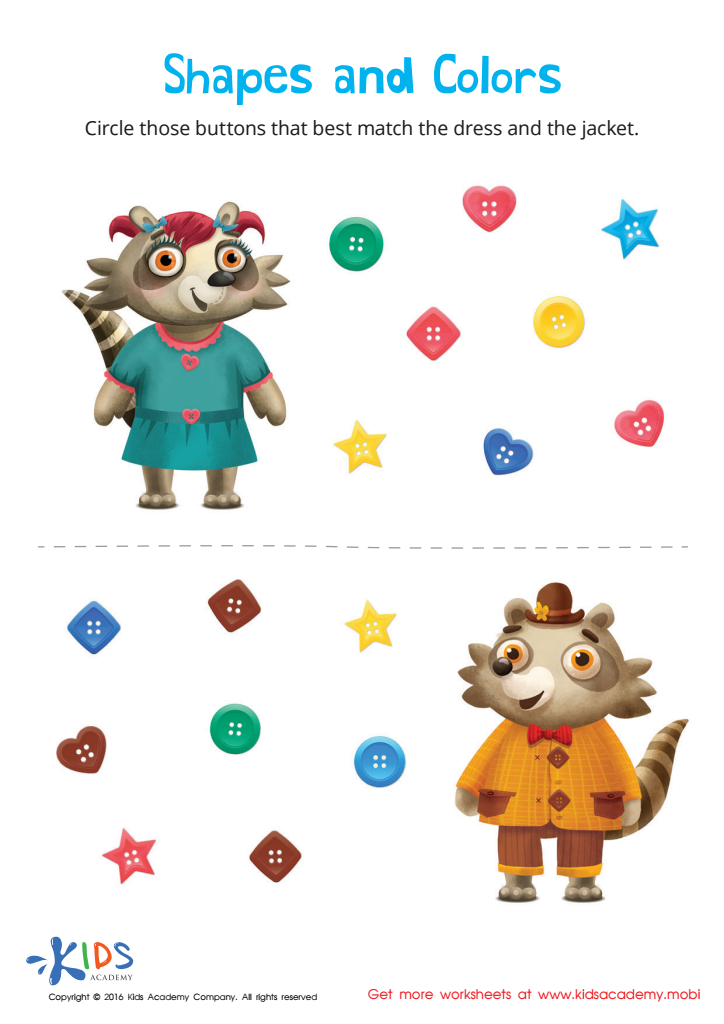

Matching: Shapes and Colors Worksheet
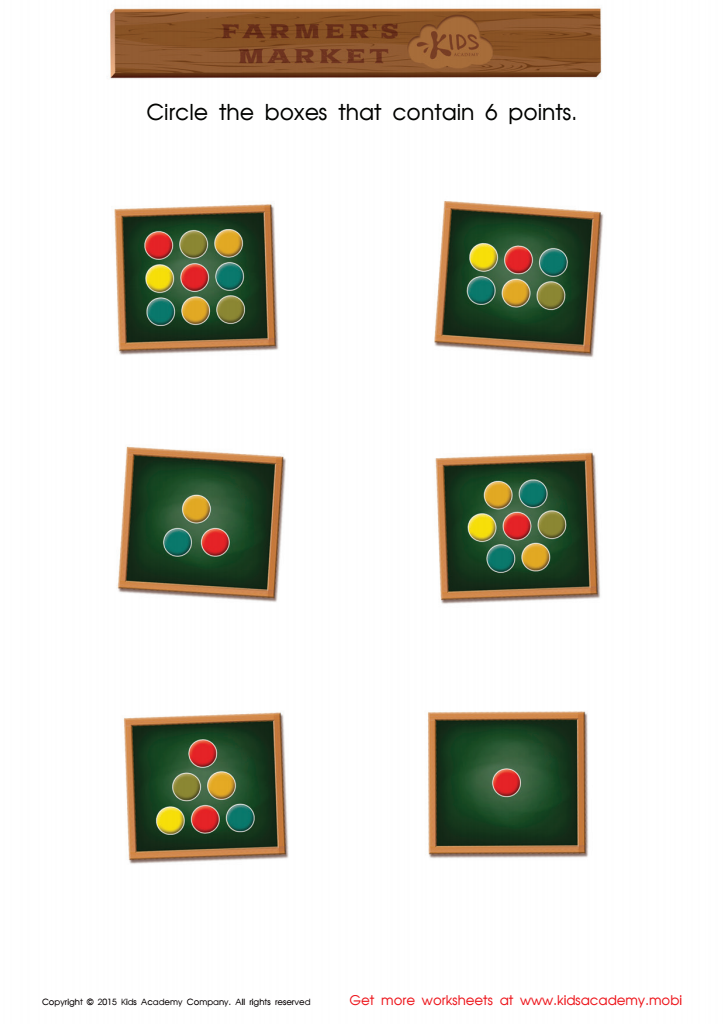

Count and Match Points 6 Math Worksheet
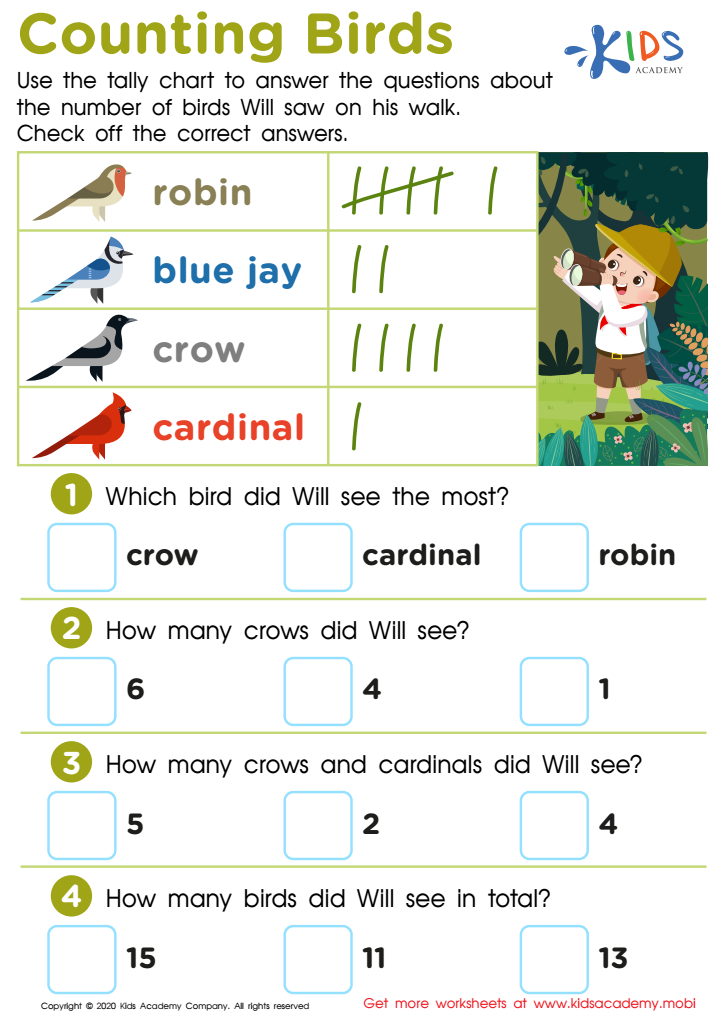

Counting Birds Worksheet
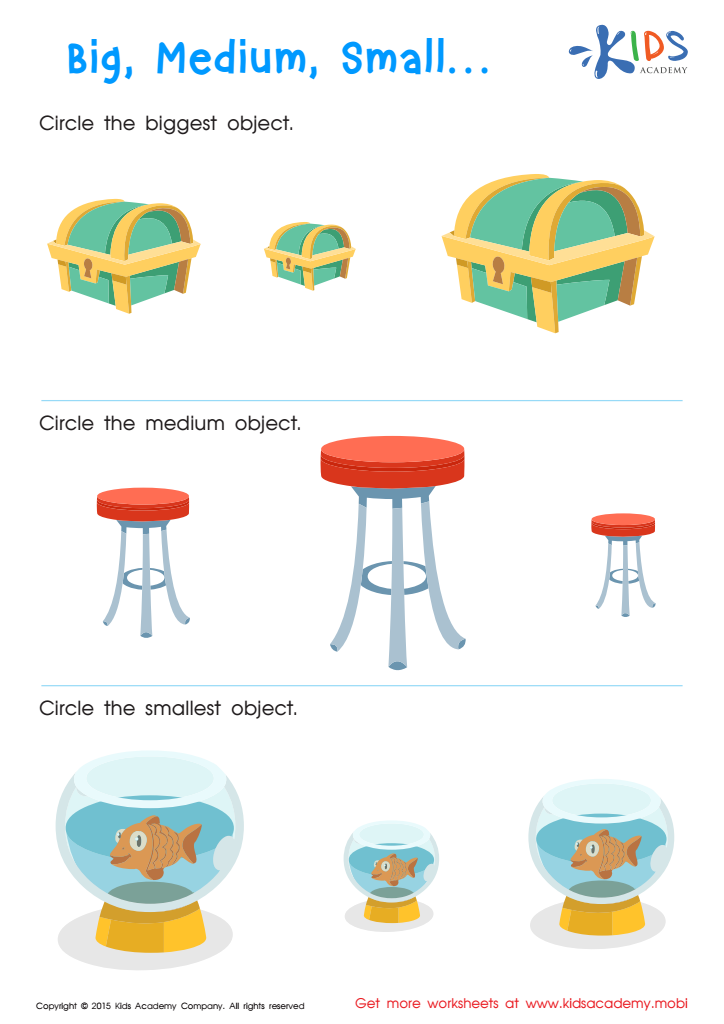

Big Medium Small Worksheet
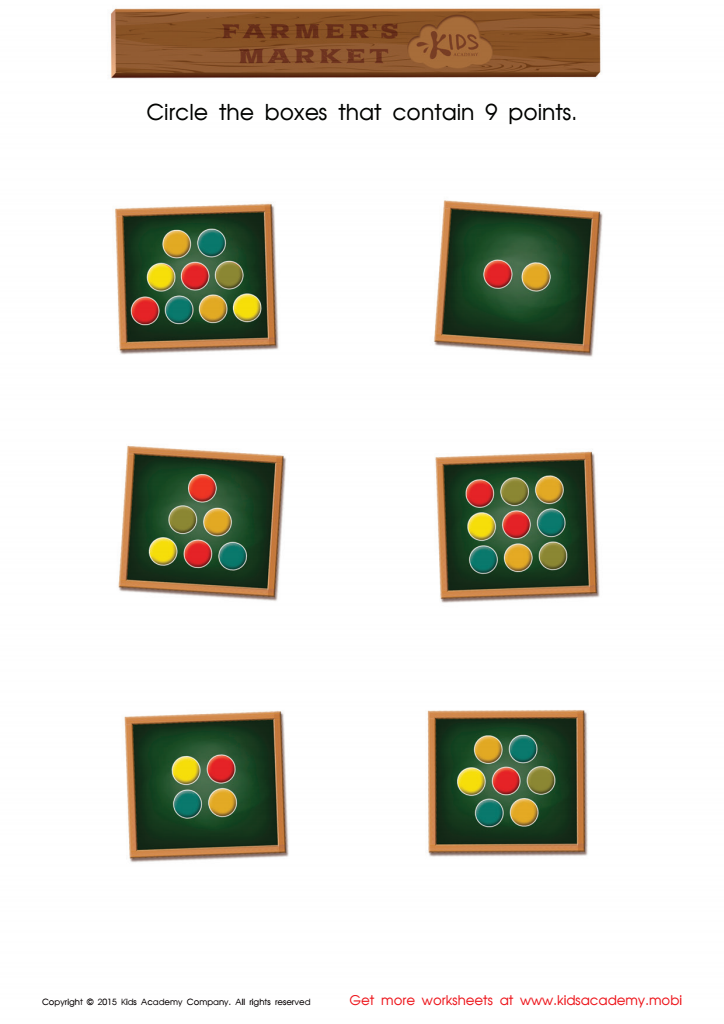

Count and Match Points 9 Math Worksheet


Count Santa's Presents Worksheet
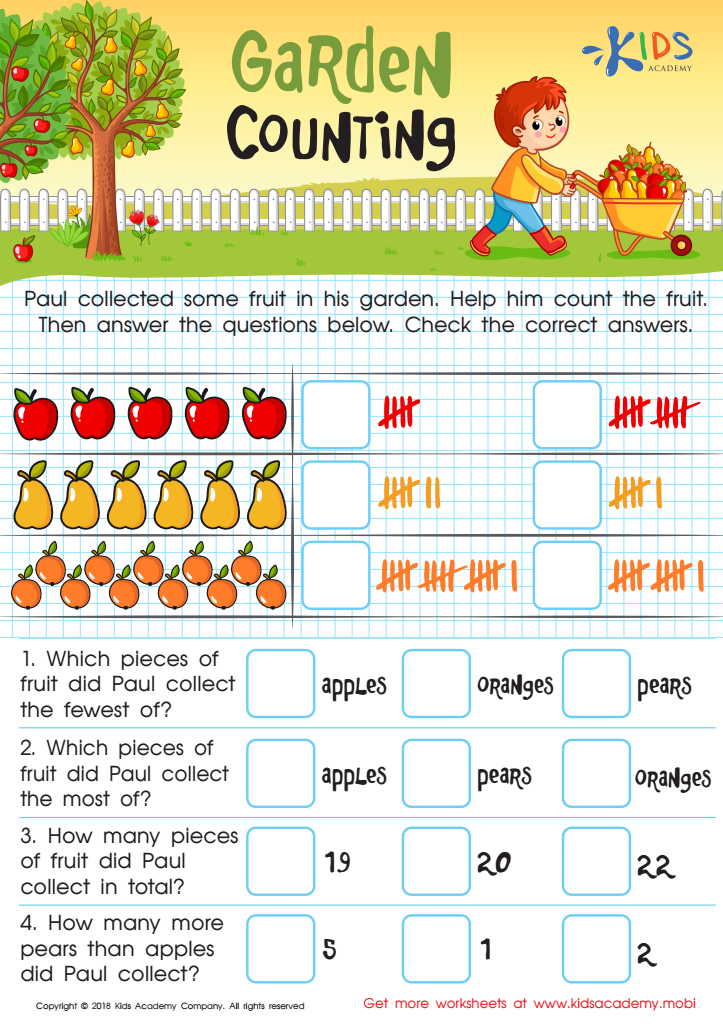

Garden Counting Worksheet
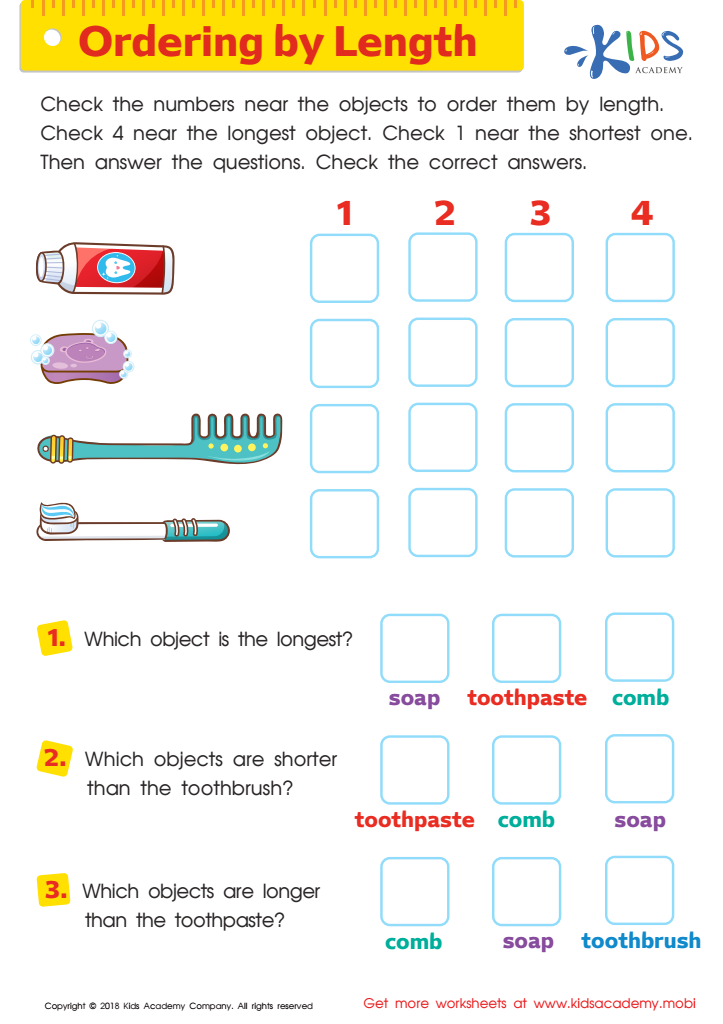

Ordering by Length Worksheet
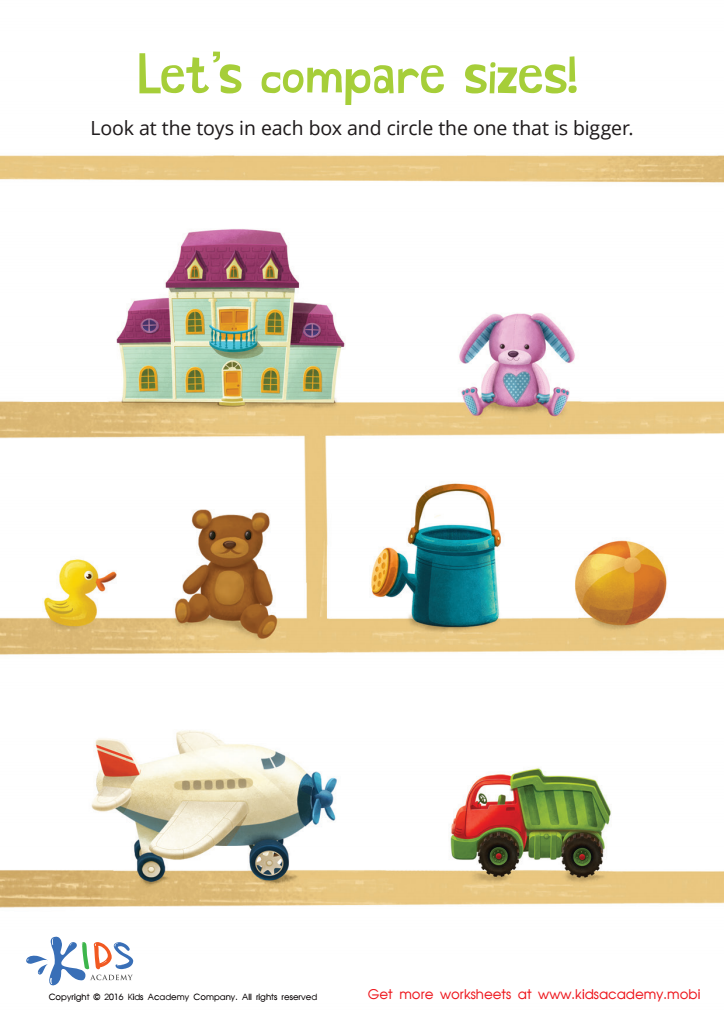

Classifying by Size Sorting Worksheet
Visual perception is a critical aspect of a child's development, significantly impacting their ability to interpret and interact with the world. For children ages 4-6, whose brains are incredibly impressionable and rapidly developing, engaging in extra challenges focused on visual perception offers substantial benefits.
Firstly, fostering visual perception skills supports academic growth. Tasks like recognizing letters and numbers, understanding spatial relationships, and mastering hand-eye coordination are all grounded in strong visual perception abilities. Engaging exercises in this area can improve a child’s reading readiness, making them better prepared for more formal schooling.
Secondly, enhancing visual perception aids in the development of fine motor skills. Activities that require children to differentiate shapes, sizes, or orientations help refine the small muscles in their hands and eyes. This skill is crucial for tasks such as writing, cutting with scissors, and other precise manual activities.
Finally, strong visual perception helps in daily navigation and social interactions. It enables children to more accurately interpret visual cues, both in their physical environment and from interpersonal interactions, leading to better problem-solving and social skills.
Parents and teachers who invest time in visual perception challenges for young children are not just aiding their immediate cognitive and motor development but are laying a solid foundation for lifelong learning and adaptation.

 Assign to My Students
Assign to My Students
















